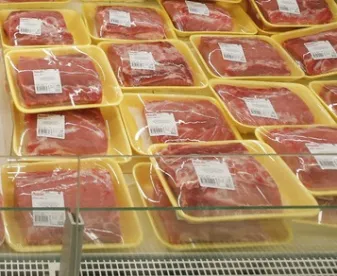M-E-A-T has become a complicated word. A variety of alternative meat products are on the market or in development. Plant-based meat substitutes are already commonplace in our grocery stores and restaurants. Some of these plant-based substitutes can look much like meat from livestock. However, cultured meats - “meat” created using animal cells - has been created and may soon be widely available. Cultured meats, unlike the plant-based meat substitutes, can take cells from living animals and then grow those cells to create meat products which do not require the slaughter of animals. A number of companies around the world are working to develop cultured beef, chicken, pork, fish, seafood, etc., and to bring those products to market.
Last year, Singapore became the first country to give regulatory approval for a cultured meat product for consumer sale. The Singapore Food Agency approved Eat Just’s GOOD Meat cultured chicken product made by San Francisco-based Eat Just for use in chicken nuggets. Eat Just’s GOOD Meat cultured chicken is grown in a bioreactor (a device that supports an environment in which cells and tissue can be grown). The cells are grown in a nutrient cocktail until the “meat” can be harvested.
Just recently, Aleph Farms, an Israeli company, announced it has created a 3-D printed rib-eye steak. Cells from a living cow were cultured to create the steak. The resulting steak is intended to have the same texture, look and taste as traditional steak. Aleph Farms can even control the tenderness of the steak and its marbling.
No cultured meat products have yet been approved for sale in the U.S. Since cultured meat is a novel product, how it will be approved, regulated, and labeled remains to be determined. In March of 2019, the FDA and the USDA entered an agreement to divide oversight authority for cultured meat products. The FDA will do the premarket evaluations and oversee the collection and culturing of animal cells, along with all of the regulatory oversight and inspections up until the cultured meat is harvested. At that point, regulatory oversight will be transitioned to the USDA. The FDA and USDA also agreed to work together to develop principles for product labeling and claims.
In December of 2019 both the U.S. Senate and House of Representatives introduced bills to govern the regulation, inspection, and labeling of cultured meat. Both bills provide for the promulgation of regulations to determine how the products will be labeled. Neither of these bills have yet been enacted into law. In October of 2020, the FDA invited comments for the labeling of cultured seafood products. The comment period ends on March 8, 2021.
Even before the agreement between the FDA and USDA regarding cultured meat and the U.S. House and Senate bills were introduced, some states had begun taking action to regulate how substitutes for traditional meat would be labeled. Missouri was the first state to pass a law to prohibit the label of “meat” being used for anything not derived from an animal carcass. A number of states have now passed such laws. More states have proposed such laws.
Needless to say, how producers of cultured meat will label their products is a controversial topic. Ranchers, farmers, and those involved in the production of traditionally slaughtered meat want to make sure that cultured meat is not labeled as “meat.” Producers of cultured meat products insist that their products are “meat” because they are made from animal cells. While some states have already passed their own labeling requirements, whenever Congress, the FDA, and USDA act and determine labeling requirements, those requirements will likely preempt state laws. Consequently, the battle is on for the definition of meat.



 />i
/>i
